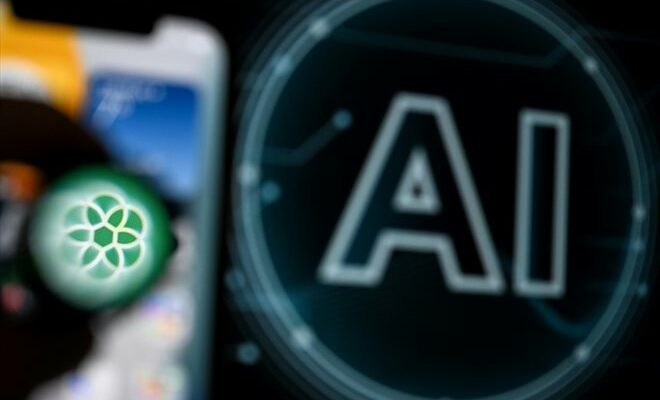Artificial intelligence (AI) raises serious concerns for employment, particularly with the rise of generative AI capable of generating content, such as ChatGPT (AFP/Archives/Kirill KUDRYAVTSEV)
Artificial intelligence (AI) raises serious concerns for employment, particularly with the rise of generative AI capable of generating content, such as ChatGPT, but it will also create new positions, estimated by the AFP Denis Machuel, boss of the Swiss group Adecco, world number one in temporary employment.
QUESTION: How will AI disrupt the world of work?
ANSWER: “This is probably the biggest revolution we’ve seen in several decades. It’s going to be huge. And let’s be clear, no one really knows what’s going to happen over the next five years.
On the one hand, there’s all the productivity that this will bring to the way people work. More broadly, this increase in productivity will also destroy some of the tasks performed.
And no one really knows what the balance will be between the positions that will be destroyed or disrupted and those that will be created. Past experience tells us that there is more or less a balance between the two. This is what we saw with the Internet or digitalization.
This technology will provide a lot of understanding of human interactions or markets, but also brings complexity. And to manage this complexity, more people will be needed. Generative AI will provide more data, more possibilities to validate new concepts, more ways of considering interactions, products and services. For all this, staff will be needed.”
Q: Are there professions that are more threatened than others?
A: “It’s probably still a little too early to say precisely which jobs are at risk. Because you have to look at what the tasks behind it are. If your job is just to gather information and synthesize it, then your position is in danger. danger, whether in finance, law or business. Because gathering information and synthesizing it is precisely what generative AI does.
White-collar workers will likely be more impacted, at least in the short term. Among white-collar workers, things related to managing masses of information will be more disrupted than skills related to building relationships, strategic thinking or problem solving.
There is a limit to this, however. If I take the example of a lawyer or a paralegal, bringing together a very large number of legal decisions can be done by generative AI. But the deep and subtle understanding of complex legal situations and the skills needed to solve problems will remain human-related.
At the same time, and I emphasize this point, routine tasks that can be automated are generally not the most rewarding. If they can be automated, it frees up time to focus on more engaging tasks.”
Q: How do you use artificial intelligence at Adecco?
A: “We have signed a partnership with Microsoft to create a career platform that will advise companies and workers on their career path, help them think about their skills but also the type of positions they can apply for. This could open up horizons on things that they would not necessarily have thought of but which are nevertheless within their reach thanks to their skills.
The good news is that there are a good number of workers whose skills are transferable. The other good news is that with generative AI, there is an explosion of possibilities for updating your skills and retraining using these tools.
We also created an AI CV generation tool. And for the daily tasks of our recruiters, we have a chatbot that interacts very quickly with thousands of candidates. This allows our recruiters to devote more time to human contacts, rather than routine tasks.”
© 2024 AFP
Did you like this article ? Share it with your friends using the buttons below.




